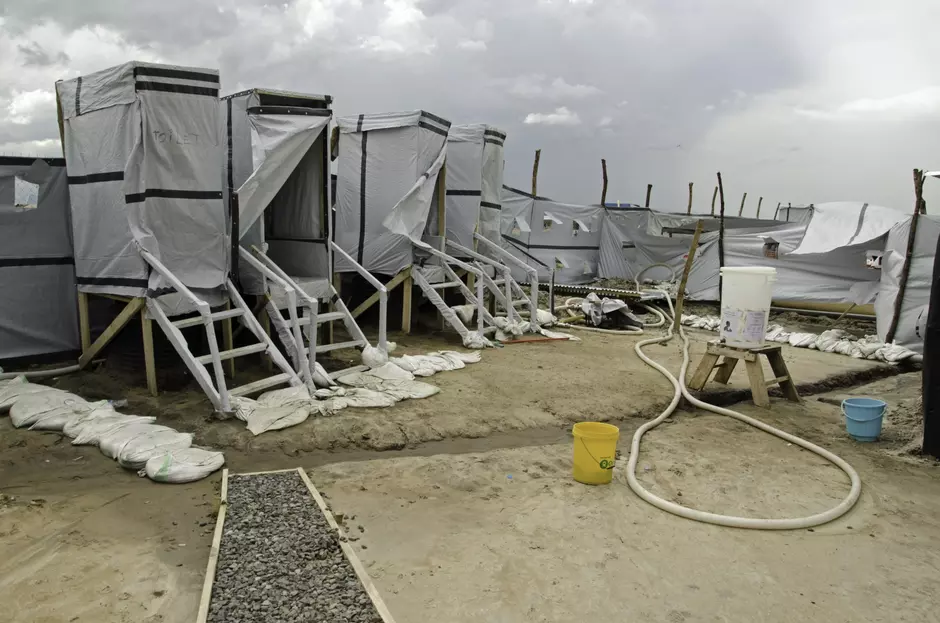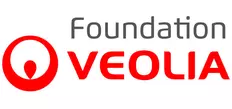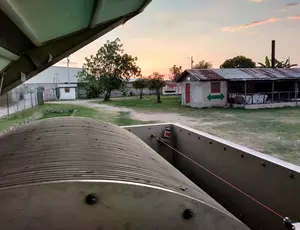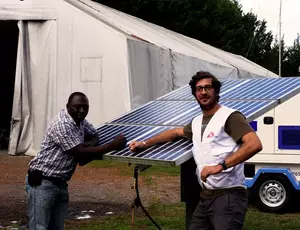
Humanitarian and Development
Location
World
Sponsors
Clément Petit
Thibaut Constant
Damien Machuel
Romain Verchère
Grants
€100,000 to the Committee meeting of 17/10/2014 for the research/innovation programme
€50,000 to the Committee meeting of 17/10/2014 for the Moissala project
€150,000 to the Board of Directors meeting of 26/01/2016
€200,000 to the Board of Directors meeting of 13/02/2017
€200,000 to the Board of Directors meeting of 17/12/2018
€170,000 to the Board of Directors meeting of 16/12/2019
€160,000 to the Board of Directors meeting of 17/05/2021
€150,000 to the Board of Directors meeting of 13/06/2022
€150,000 to the Board of Directors meeting of 12/06/2023
€150,000 to the Board of Directors meeting of 17/06/2024
Project Leader
Médecins Sans Frontières (MSF) / Doctors Without Borders (DWB)
The Veolia Foundation and Doctors Without Borders have enjoyed a long-standing partnership. As early as 2010, the fight against cholera in the Democratic Republic of Congo (DRC) led to a first collaboration, with the rehabilitation and extension of the drinking water network in the city of Kalemie, in Katanga. This was followed shortly after by the deployment and testing of an emergency water treatment station (Aquaforce 500) in refugee camps in northern Uganda.
A double objective
Building on these initial successes, in 2015 the two partners signed a framework agreement to formalize their relationship in humanitarian intervention. The principle is simple: DWB asks the Veolia Foundation for support in research/action, assisted by the technical skills available within the Veolia Group; the Foundation then places its Veoliaforce volunteer experts at DWB's disposal to support it in its research and innovation projects on issues linked to its activities in the field and in areas relating to the Veolia Group's professions (sanitation and drinking water, energy and waste). The aim is to test new operating methods and equipment in order to allow DWB to better control its environmental footprint and gain autonomy during its humanitarian interventions.
Achievements in Chad and Kenya
The energy sector has enabled this partnership to take shape for the first time with a pilot project for the supply of photovoltaic solar energy. In southern Chad, in the Moissala region, DWB has been carrying out a large-scale project since 2010 on the prevention and treatment of malaria, the leading cause of death in children under five in this district. The NGO has a base camp on site which accommodates between five and ten expatriates as well as local staff and it houses a large stock of equipment and medicines. The particularly isolated location of this base camp, its average size and the significant amount of sunshine from which it benefits have made it a prime location for testing a photovoltaic solar energy supply solution. In 2015, Grégory Gamboua, in charge of Innovation at the logistics department at DWB, travelled to Chad to test a hybrid photovoltaic system. The aim is to make the project autonomous while at the same time securing it in terms of power supply.
Renewed in 2015, the partnership has increased in size. In western Kenya, DWB is running an HIV programme. A mobile screening and minor surgery centre was set up to spend two years travelling around Ndhiwa County, which is particularly affected by the virus. The Foundation participated in the scheme by providing an Aquaforce 500 mobile water treatment unit to supply the health centre. Veoliaforce volunteers have followed one another on site to train DWB staff in setting up and operating this Aquaforce unit. The two partners also worked on the production of a field guide on solar hybrid generators, on the production of a 6 kVA “plug and play” solar kit as well as on other renewable energy projects.
Innovations in water and sanitation
In 2016, the focus was on innovation in the water and sanitation sector. At DWB’s request, the Foundation expanded the Aquaforce range by designing a model intended to supply 15,000 people with water: Aquaforce 15000. Conclusive tests made it possible to make improvements to the initial design of the product by favouring its adaptation to field constraints. In 2018, a full-scale prototype was tested in Uganda, in a context of massive population displacement fleeing from the Democratic Republic of the Congo. This first deployment made it possible not only to stem the emerging cholera epidemic, but also to validate the choices made during the development of this new treatment station.
At the same time, DWB continues to use the Aquaforce 500 which, in 2017, was deployed jointly in medium‑sized to large hospitals, in particular in Al Qayyara (South Mosul). In 2017, family and community water filtration solutions were also the subject of comparative studies.
The research effort carried out by the two partners also touches on the issue of sanitation and wastewater treatment. The Foundation supports DWB in assessing technical solutions for treating effluents, particularly by defining a monitoring methodology and measuring tools adapted to the intervention situations. In 2016, the two partners notably worked on dehydration latrines. Installed in Uganda and south Sudan, they are the result of adapting pre-existing solutions and tested in the field by DWB teams. South Sudan has also been the testing ground for a project to treat excreta with bio-activators. In 2018, the teams' joint work focused on the sizing of a wastewater treatment station for a DWB hospital in Haiti (biodisks).
In terms of waste management, the resources provided by the Foundation have enabled the development of several types of incinerators intended for health centres or base camps.
A programme to study wastewater treatment solutions was also launched in Haiti and then, in 2017, extended to other countries with the objective of offering a quality standard that DWB can meet in treating its effluents from its projects around the world. Another avenue, tests on biological products for reducing the volumes of excreta retained in latrines in humanitarian emergency situations were conducted in 2017. The treatment of cholera effluents remains another subject of study, monitored with the assistance of the University of Brighton.
Training for MSF staff
Lastly, the partnership covers a training component: the Foundation supports DWB in the cultural change that goes hand in hand with innovation and carries out tasks in the field to familiarize the teams with the equipment made available. In 2017, the two partners thus planned to include in the training course for DWB’s operational teams awareness sessions on the Aquaforce 500 for them to include this technology among the options available to them to supply drinking water during the various assignments.
Innovation is at the heart of the Veolia Foundation's approach. Support for the action/research programme carried out with DWB was also renewed at the end of 2018 and 2019 and mid‑2021. The work carried out with this major player in international humanitarian responses confirms the relevance of the approach and enhances the expertise of the Veoliaforce network.
Related news stories
Testimony of Claire Magone (Médecins Sans Frontières), keynote speaker at the 2025 Veolia Shareholders' Meeting
Innovation topics
Drinking water
- Optimising Aquaforces mobile water treatment units and extending their use in emergencies, in particular Aquaforce RO for treating brackish water
- Hybrid solar/thermal pumping (pilot installation of hybrid pumps in Chad)
- Electrochlorination (solar or otherwise) and in-line chlorination module (tested in an MSF hospital and two community health centres in Chad)
- Water quality control in networks (biofilms and bacterial contamination, including Pseudomonas aeruginosa), particularly in hospital networks (Haiti)
Sanitation
- Research and testing of biodisks as a wastewater treatment solution (experimentation on hospitals managed by MSF in Haiti) with optimisation of the disinfection process by adding tertiary UV-LED treatment.
- Tertiary disinfection of wastewater from the Sica hospital in the Central African Republic,
- Management of latrine sludge in Old Fangak, Southern Sudan
- Above-ground latrines
- Bio-activators for excreta digestion in latrines
- Development and testing of a field laboratory for faecal sludge and wastewater
- Reuse of hospital effluent in Yemen: analysis results and design proposal
Hygiene and waste
- Resource recycling and/or disposal
- Recycled water hand-washing station
- Recycling of hazardous waste produced on projects (lead/acid batteries in particular) with
- The development of a battery recycling facility in Kenya for missions based locally
- Increased expertise in the regulatory constraints on transporting WEEE in a country bordering southern Sudan
- Identification and treatment methods for hazardous molecules used in therapies, particularly anti-cancer drugs (cytotoxic molecules)
- Capitalising on and creating decision-making tools to help select the solution best suited to the specific characteristics of each waste and each mission.



